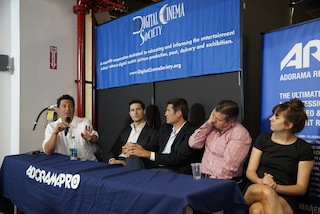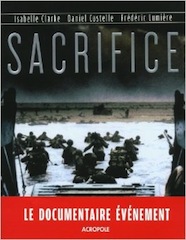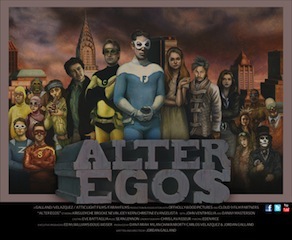 An independent filmmaker with many successes to his credit said it best: “Forget the show. Remember the business.” The most common mistake that new filmmakers make is to ignore the business side of the show business equation. And yet the financial aspects of show business are typically the most challenging. Last week in New York’s Gramercy Park neighborhood, the equipment sales and rental house Adorama hosted a panel of veteran filmmakers to discuss current approaches to motion picture finance and give practical advice about how producers can earn a return on their investment. More than fifty people crowded into the small meeting room for the discussion, which was moderated by Digital Cinema Society president James Mathers, himself a successful indie film cinematographer. The panelists brought a wide range of experiences to the conversation.
An independent filmmaker with many successes to his credit said it best: “Forget the show. Remember the business.” The most common mistake that new filmmakers make is to ignore the business side of the show business equation. And yet the financial aspects of show business are typically the most challenging. Last week in New York’s Gramercy Park neighborhood, the equipment sales and rental house Adorama hosted a panel of veteran filmmakers to discuss current approaches to motion picture finance and give practical advice about how producers can earn a return on their investment. More than fifty people crowded into the small meeting room for the discussion, which was moderated by Digital Cinema Society president James Mathers, himself a successful indie film cinematographer. The panelists brought a wide range of experiences to the conversation.
They included:
Mark Pederson, CEO of OffHollywood Pictures, formed to develop, co-produce, and produce original content as an adjunct to their technology and production services division. Films produced in association with Offhollywood Pictures include the two time Academy Award nominee, Frozen River, Stake Land winner of the 2010 Toronto Film Festival Audience Award in addition to 2013 Sundance Film Festival world premieres The Lifeguard and Ass Backwards.
Simon N. Pulman of Cowan, DeBaets, Abrahams & Sheppard is a transactional attorney focused on entertainment and media law. He advises a variety of scripted, reality and documentary productions in financing, production and distribution matters. Services include negotiating financing, rights acquisition, music licenses and talent agreements; advising on clearance and fair use issues; ensuring guild compliance; and negotiating distribution and foreign sales agreements.
 Frederic Lumiere, indie filmmaker and CEO of Lumiere Media, an award-winning independent production company that has developed a wide variety of programming including the feature, Tomorrow is Today, for Cinemax, The Wereth Eleven for National Geographic, World War II in HD and ‘70s Fever for the History Channel, on which he served as producer/director/editor.
Frederic Lumiere, indie filmmaker and CEO of Lumiere Media, an award-winning independent production company that has developed a wide variety of programming including the feature, Tomorrow is Today, for Cinemax, The Wereth Eleven for National Geographic, World War II in HD and ‘70s Fever for the History Channel, on which he served as producer/director/editor.
Roderic David, CEO of Thunder Studios, who recently announced the creation of Thunder Funder, an initiative devoted to the indie film industry that will invest $12,000,000 annually into the creation and distribution of twelve independent films.
Vann Alexandra Daly, a crowd-funding producer whose expertise has earned her the name the Crowdsourceress. Her company has produced several successful crowd-funding campaigns raising millions of dollars for clients ranging from Oscar and Emmy nominated filmmakers to Neil Young. Additionally, she is a columnist for Big Think, and produces films, which have received support from the Macarthur Foundation, Sundance, Tribeca, and more.
After the introductions were made, Lumiere asked for the microphone and started off the discussion with his blunt message: “Forget the show. Remember the business.” All of the panelists agreed and Pederson added that, especially in this era of such popular crowd-funding websites as Kickstarter and Indie Go Go, “Raising money’s not hard. It’s tough to make money.”
Daly said that one of the plusses of crowd-funding is that the money comes with no strings attached because sites like Indie Go Go, currently at least, will actually not permit the people who contribute to projects to make money on that project or even get their money back. The money they contribute is strictly a donation. Raising money that way always ensures that a filmmaker will have complete artistic freedom. And there’s no financial penalty for failing to complete the project, although Daly strongly cautioned against that, saying that the damage to a filmmaker’s reputation would last “a very, very long time.”
The panel made the point that raising money through crowd-funding is not that different from raising money in the past. In all cases, David said, “You have to be the champion of your film.” Daly agreed saying, “Sell your passion.” Pederson made the point that, “You don’t have to raise all your money with crowd-funding.” He called the whole money-raising process “fashionable begging.”
 Lumiere said that filmmakers should do everything they can to secure distribution rights in advance. He noted that for his movie Sacrifice, a World War ll documentary, every country was pre-sold and he still owns the rights to the film. His career, however, did not have such an auspicious beginning. He made that first movie as a teenager and raised the entire budget from family and friends.
Lumiere said that filmmakers should do everything they can to secure distribution rights in advance. He noted that for his movie Sacrifice, a World War ll documentary, every country was pre-sold and he still owns the rights to the film. His career, however, did not have such an auspicious beginning. He made that first movie as a teenager and raised the entire budget from family and friends.
At the time he was a huge fan of The Who and their 1973 rock opera Quadrophenia and his documentary was an in-depth look at the music. It went on to success at several film festivals and was even called by some, “The best Who documentary ever.” The problem, which Lumiere soon learned when he tried to sell the film, was that he did not own the rights to the music and could never hope to gain those rights.
The best way to avoid that kind of scenario agreed Pulman, the entertainment attorney, is to plan ahead and, if at all possible, secure at least some distribution rights before production even begins. He gave several specific pieces of advice, all of which fell under the category of protecting yourself in case something goes awry with your distributor. “Carve out an exit strategy in advance,” he cautioned, so that if the worst happens you and your movie are protected. Since many indie distribution companies tend to be one and two-person shops, he suggested writing a “key man clause” into any agreement so that if the person you’re dealing with at a distribution company leaves for any reason you retain the rights to your movie.
Pederson was upbeat about the current state and the future of video on demand and said that with hard work and a good movie it is possible to make money as an independent filmmaker. He gave the example of writer/director Jordan Galland and his 2012 film Alter Egos. Pederson said one flaw many indie films have is “they show their hand.” He gave two examples of what he meant by that. A filmmaker will cast someone’s best friend or his mother in the movie and they can’t act and it immediately calls attention to the fact that it’s a low budget film. Or they set their story in a location they can’t possibly afford to use or recreate and, rather than revise the script, they create an poorly conceived cheap set that, once again instantly says, this is a low budget film. Despite being made with a budget around just $200,000, Pederson said, “Alter Egos never shows its hand.” He invested a little money in the project because he believed in it and the filmmaker, not because he realistically expected to make any money.
 He also offered to help find a distributor. In addition to being well made, Alter Egos benefitted from the fact that Galland is close friends with Sean Lennon, who contributed the music to the film. Pederson said he was then shocked that every single film festival rejected the movie. Finally, he learned that Kevin Smith of Clerks fame was starting a distribution company called Phase Four. Pederson got the movie to Smith who also loved it and made it the first movie his company distributed. Pederson said the film has gone on to make a profit on VOD, adding, “It did more than a million dollars on Comcast alone.”
He also offered to help find a distributor. In addition to being well made, Alter Egos benefitted from the fact that Galland is close friends with Sean Lennon, who contributed the music to the film. Pederson said he was then shocked that every single film festival rejected the movie. Finally, he learned that Kevin Smith of Clerks fame was starting a distribution company called Phase Four. Pederson got the movie to Smith who also loved it and made it the first movie his company distributed. Pederson said the film has gone on to make a profit on VOD, adding, “It did more than a million dollars on Comcast alone.”
As essentially positive and encouraging as the panel was, they strongly advised new filmmakers to never trust distributors. Pederson in particular, said, “This is an industry where white collar crime is legal.” He blamed distributors for creating a laundry list of gray areas in contracts and for a complete lack of transparency in their business dealings. “Distributors are taking money they don’t deserve,” he said and no one on the panel disagreed.
Deliverables represent another hurdle that new filmmakers too often take for granted, the panelists all agreed. Selling a film is typically not the end of the process for movie producers but, rather, just the beginning. Different distributors and different outlets usually require that the movies they accept be delivered to them in specific formats and today there is a dizzying array of different formats. Unless otherwise stipulated in a contract, paying for these various iterations is the responsibility of the filmmaker and people who are not knowledgeable about new technology face an even bigger challenge.
Pederson, who was perhaps the most technically savvy member of the group, strongly advised filmmakers to work with a reputable post house to deal with deliverables unless they have a solid working knowledge of what a challenge deliverables can be. He was also the most positive about their future. “The deliverables situation is changing for the better very quickly,” he said. We’re currently living through a transition era but that is coming to an end and a file-based future is at hand. Pederson said the time when deliverables will simply be data files is coming. He went so far as to predict that in the very near future all video on demand channels will be moving to adopt a new version of Apple Pro Res for all their deliverables.
Asked by Mathers what filmmakers should know about marketing their films, Daly said that one of the benefits of crowd-funding is that while you’re raising money you’re also promoting your movie. David said flatly that there aren’t any marketing dollars for most films.
That sad reality is why Daly is such a strong believer in crowd-funding. She called the process of raising money “a pre-sell test” and said the people who support your project will help you spread the word about it. “Be aggressive using social media. Engage with that community and they’ll be your biggest fans.” She gave the example of a filmmaker who raises his or her complete budget from a thousand people. “They’re your [first] audience.” She said when she takes on a project she charges an upfront fee and then she and her team put in “a lot of hard work for thirty days.”
All of the panelists said that dramatic changes are coming to the world of crowd-funding and most of them believe all the changes will not be for the better.
Lumiere called this “the Golden Age of crowd-funding but it’s going to change. I’m not sure in five years it’ll be the same.” He predicted that donations-only crowd-funding sites could soon be replaced by business by equity crowd-funding. Daly reluctantly agreed. Donations-only crowd-funding “might be obsolete,” she said but she made it clear that she’s not a big fan of equity crowd-funding. “That would be a shit storm,” she said.
The photos of the panelists, courtesy of Mark Forman.
